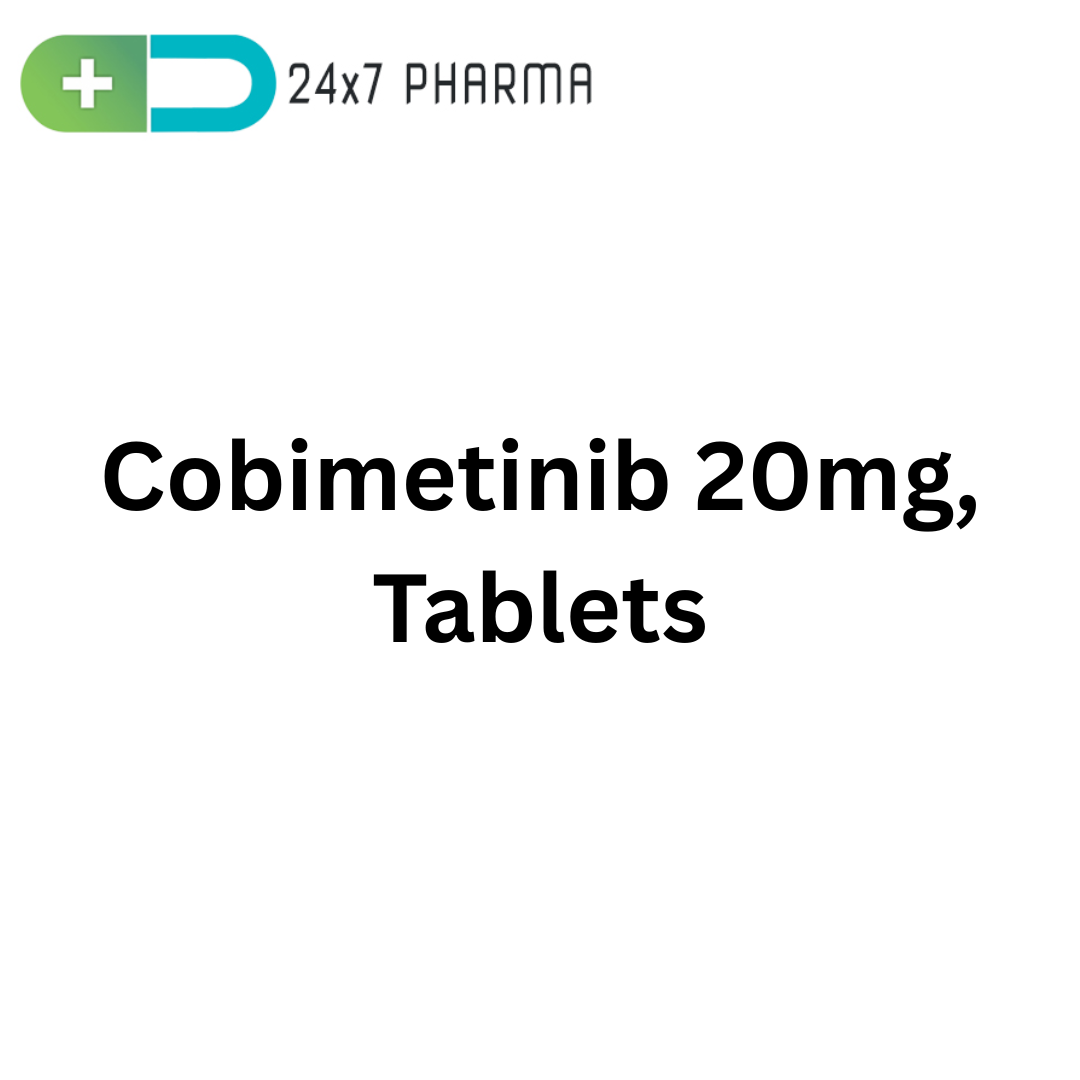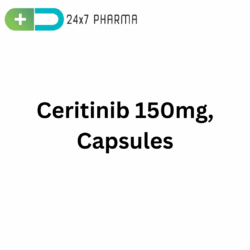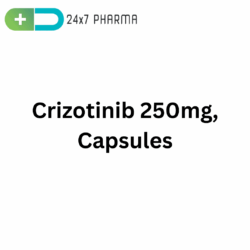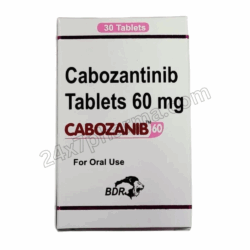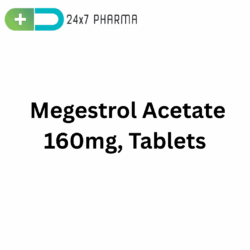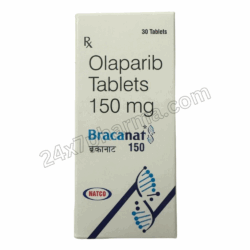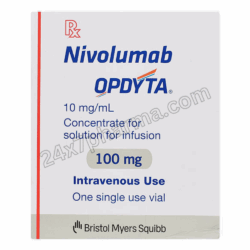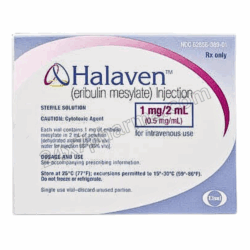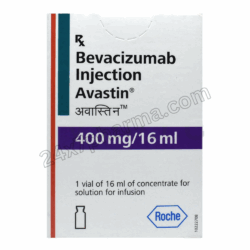LuciCob 20mg, Cobimetinib Tablets
Cobimetinib is a targeted medicine used to treat some types of cancer. cobimetinibis sold under the Cotellic brand. It is especially advised for the treatment of adult patients with BRAF V600 mutations who have metastatic or incurable melanoma. It is administered in combination with vemurafenib, a BRAF inhibitor, to enhance therapeutic efficacy.
LuciCob 20 mg, containing the active ingredient cobimetinib, is a targeted therapy used in oncology. As a MEK inhibitor, it plays a crucial role in treating specific types of cancer. Below is a detailed guide covering its indications, dosage, side effects, storage, benefits, interactions, and more.
Indications
LuciCob 20 mg is primarily indicated for:
- Adult patients with melanoma that is unresectable or metastatic and with a BRAF V600E or V600K mutation should take vemurafenib in addition to it.
- Histiocytic Neoplasms: As a single agent for adult patients with histiocytic neoplasms.
- Before initiating treatment, confirm the presence of the BRAF V600 mutation through a validated test.
Dosage and Administration
- Recommended Dose: 60 mg (3 tablets of 20 mg) once daily.
- Administration Schedule: Taken on a 28-day cycle:
- Days 1–21: 60 mg once daily.
- Days 22–28: No treatment (treatment break).
- Method of Administration: Oral intake, with or without food.
- Treatment Supervision: A trained medical professional with experience with anticancer medications should initiate and oversee treatment.
Other Dosage Forms
Cobimetinib is available as 20 mg film-coated tablets, each containing cobimetinib hemifumarate equivalent to 20 mg of cobimetinib. The tablets are white, round, and debossed with “COB” on one side.
Common side effects of LuciCob 20 mg include:
- Gastrointestinal: Diarrhea, nausea, vomiting.
- Dermatological: Rash, photosensitivity.
- Systemic: Fever (pyrexia).
Serious adverse reactions may involve:
- Cardiovascular: Cardiomyopathy.
- Hematologic: Lymphopenia.
- Ophthalmologic: Retinal vein occlusion.
- Hepatic: Hepatotoxicity
- Musculoskeletal: Elevated creatine phosphokinase (CPK), rhabdomyolysis.
- Regular monitoring is essential to manage these potential side effects.
Storage
Store LuciCob 20 mg at room temperature, away from excess heat and moisture. Do not dispose of medications via wastewater or household waste; consult your pharmacist for proper disposal methods.
Safety: Keep out of reach of children.
Disposal: Do not dispose of via wastewater or household waste.
Benefits
LuciCob 20 mg offers several benefits in cancer treatment
- Targeted Therapy: Inhibits the MEK protein, crucial in the MAPK/ERK pathway, which is often overactive in certain cancers.
- Combination Therapy: When used with vemurafenib, it enhances the therapeutic effect in BRAF-mutated melanoma.
- Oral Administration: Provides a convenient oral dosage form, facilitating outpatient treatment.
These benefits contribute to improved outcomes in specific cancer types.
Prescription
Cobimetinib is a prescription-only medication. It should be prescribed by a healthcare professional experienced in the use of anticancer therapies. Prior to initiation, confirmatory testing for BRAF V600 mutation status is essential to ensure appropriate patient selection.
Drug Interactions
LuciCob 20 mg may interact with:
- CYP3A Inhibitors: Avoid strong or moderate CYP3A inhibitors (e.g., ketoconazole, clarithromycin) as they can increase the levels of cobimetinib.
- CYP3A Inducers: Avoid strong or moderate CYP3A inducers (e.g., rifampin, carbamazepine) as they can decrease the effectiveness of cobimetinib.
- Other Medications: Inform your healthcare provider about all other medications, including over-the-counter drugs and supplements, to assess potential interactions.
FAQS
Is LuciCob 20 mg safe during pregnancy?
LuciCob may harm an unborn baby. Avoid using it during pregnancy unless clearly necessary and after a careful consideration of the risks and benefits.
Can cobimetinib be used alone?
No, cobimetinib is used in combination with vemurafenib for the treatment of BRAF V600 mutation-positive melanoma.
Can I breastfeed while on LuciCob?
Breastfeeding is not recommended during treatment due to potential risks.
Conclusion
LuciCob 20 mg (cobimetinib) is a targeted therapy use in the treatment of specific cancers, particularly melanoma with BRAF V600 mutations. While it offers significant therapeutic benefits, it requires careful monitoring due to potential side effects and drug interactions. Always follow your healthcare provider’s instructions and attend regular follow-up appointments to ensure the best possible outcomes.
It is a targeted therapy that plays a crucial role in the management of unresectable or metastatic melanoma with a BRAF V600 mutation. When used in combination with vemurafenib, it offers significant clinical benefits, including improved progression-free survival and enhanced response rates. However, its use requires careful consideration of potential side effects, drug interactions, and contraindications.

